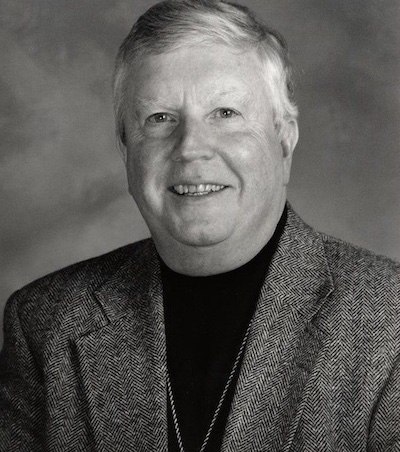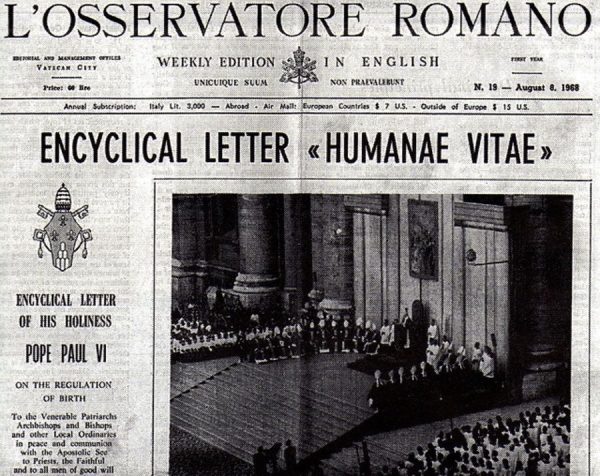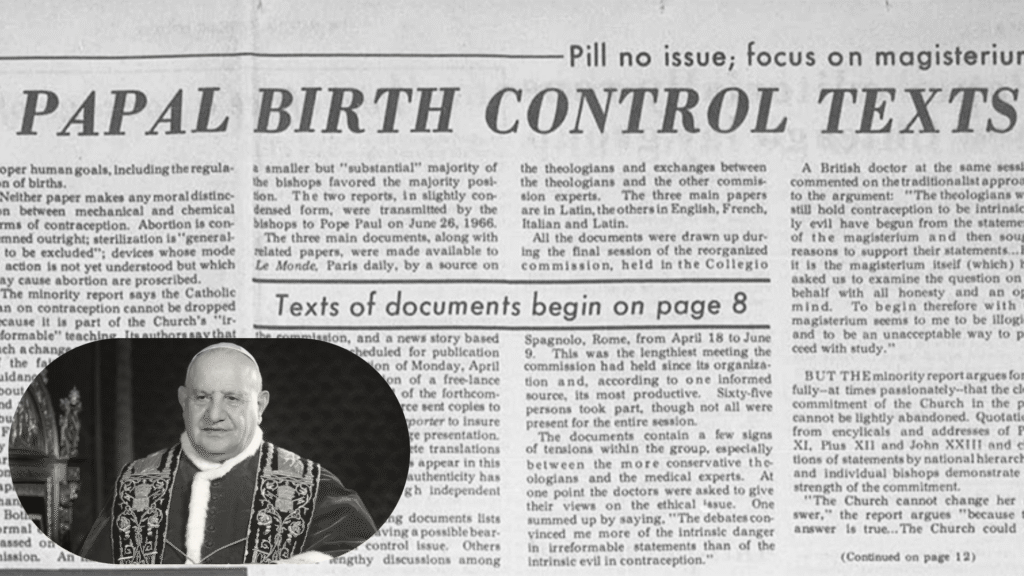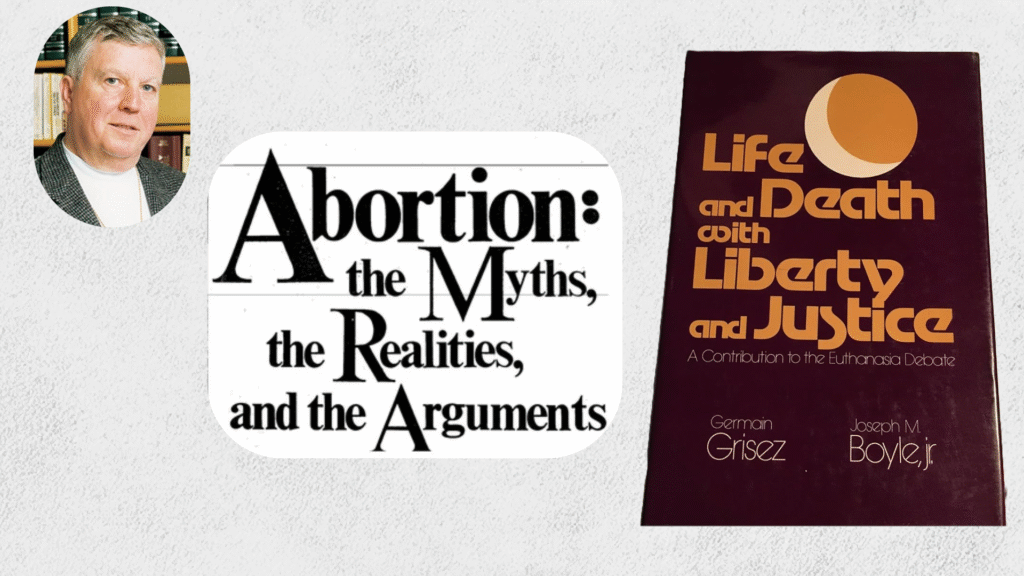

The Catholic Patriotic Minute: Germain Grisez
Catholics For Catholics Special Edition | July 21st, 2025
WATCH VIDEO below.
Germain Grisez: An American Philosopher with Eyes Set on Heaven
On July 25, 1968, Pope Paul VI published his papal encyclical, Humanae Vitae, which reiterated the purpose of marriage and asserted that abortion and artificial contraception are not permitted in marriage. In the United States, during the sexual revolution, this stance of the Catholic Church was met with outrage, even from American Catholics. Yet, a group of American Catholics defended Humanae Vitae with vigor, and one of these defenders was Germain Grisez.

Born in 1929, Grisez was born into a Catholic family and a nation facing the Great Depression. His education as a young boy was not wanting, however, due to his mother, Mary. Although Mary’s education stopped after the eighth grade, she was well-read in Catholic authors, such as Newman, Chesterton, and Belloc, and her passion for learning was instilled in Germain.
Once Grisez began his college education at John Carroll University, he was introduced to Saint Thomas Aquinas’s works by his professor, Marshall Boarman, and wrote his bachelor’s thesis on “Art and Beauty in Aquinas.” While reading Aquinas’s writings on heaven, Grisez felt called “to serve the truth God revealed in Jesus’ by becoming a philosopher and presenting the existence of God to non-Catholics at the university level. However, no state or non-Catholic university would hire Grisez as a professor, and subsequently he accepted an offer from Georgetown University.
By 1966, Grisez considered himself a Christian philosopher, with the mission “to remain at [his] post, defending both nature and reason” and the duty to “guard theologians, the pastorally oriented bishops, as well as the Christian community at large against an excessive enthusiasm which easily produces a willingness to surrender rational consistency and such merely natural goods as the initiation of human life.” Grisez found this “excessive enthusiasm,” that is, the support for artificial contraception, in his own Christian community and philosophy department at Georgetown in 1963. The debate on birth control arose in the early 1960’s, and Grisez himself was unsure about his thoughts on birth control, until he read Pope Pius XI’s 1930 encyclical, Casti Connubii, which forbade the use of artificial contraception for Catholics. In 1964, he published Contraception and the Natural Law, in which he defended the Church’s condemnation of artificial contraception. Yet, Grisez presented his own argument, that the evil of contraception is that it acts directly against the procreative good, the beginning of human life.

In response to this world-wide debate on artificial contraception, Pope John XXIII created the commission, famously known as the Papal Birth Control Commission, and Pope Paul VI continued it in 1964. The majority of those serving the commission believed that the Church’s teachings condemning artificial contraception should be subject to change, especially in regards to the Pill. Father John Ford, S.J., an American theologian, was a part of the minority serving the commission that defended the Church’s teachings. In 1964, Ford asked Grisez to assist him by providing notes and research on Ford’s writings. In 1966, both Ford and Grisez collaborated on the minority report, asking Pope Paul VI to reaffirm the Church’s teaching and not to follow the majority. The Pope’s Humanae Vitae did concur with Ford and Grisez, rather than the majority.
Dissent against Humanae Vitae broke out mostly in Europe and the United States, where the Archdiocese of Washington D.C. was the center of opposition. Cardinal Patrick O’Boyle was a defender of the encyclical, but fifty four priests strongly opposed it. The Cardinal responded by removing their faculties, with the invitation to adhere to the full teaching of the Church and then to receive their faculties once more. Cardinal O’Boyle asked for Grisez to take a leave of absence from Georgetown University to aid him in this loud dissent. Through advising and responding to letters on behalf of the Cardinal, Grisez further explained the immorality of birth control and fostered understanding about the proper use of Natural Family Planning. Eventually, the number of dissenting priests decreased to fifteen in the Archdiocese of Washington D.C.
Grisez returned to Georgetown a year later, to continue his writing on ethics, which was not limited to artificial contraception. He contributed to the discussions around abortion and euthanasia in order to help save lives and discourage legislators and judges from legalizing them. Grisez also wrote on the immorality of nuclear deterrence, a crucial topic during the Cold War. However, his most well-known writing would be The Way of the Lord Jesus, a three-volume book that is read to this day by seminarians and moral theologians.

As Robert P. George wrote, Grisez’s writings on ethics “was motivated by love of truth and a profound dedication to the salvific mission of the Church as the mystical body of Christ.” Grisez was worried about the common practice after the Second World War of Catholics taking salvation for granted. In an open letter to Pope Francis in 2016, Grisez, along with John Finnis, expressed concern about the misinterpretations of Amoris Laetitia, including the position that “[a] Catholic need not believe that many human beings will end in hell.” With the help of Father Peter Ryan, Grisez was outlining a book on the Kingdom of God until his death in 2018. Through all his works of ethics, but especially in his last one, Grisez called out to American Catholics today, by exhorting,
“With God, all things are possible. But without awareness of and hope for God’s kingdom, will many people in this fallen world persevere until death in living the truth in love? . . . Catholics who share Jesus’ integral message about God’s kingdom with others while bearing witness to that gospel’s truth by holy lives will move many hearers to accept the gospel’s divine proposal. Nothing else can afford people living in darkness and the shadow of death the [peace] they naturally desire, and the kingdom will provide it superabundantly—ongoing and ever-increasing fulfillment, unimpeded by evil, in every sort of genuine human good.”

Despite most American Catholics opposing the Church’s condemnations of artificial contraception, abortion, and euthanasia in the mid-to-late twentieth century, Germain Grisez defended the Magisterium, with the hope that more souls would enter God’s Heavenly Kingdom.
For more Catholic Patriotic Minutes, visit CATHOLICUSA.COM
Save and Share This Catholic Patriotic Minute!
